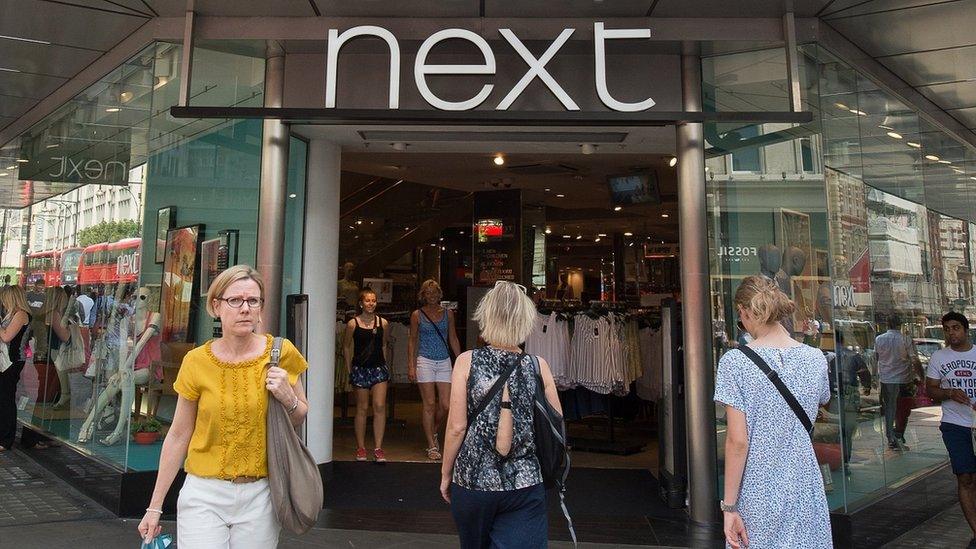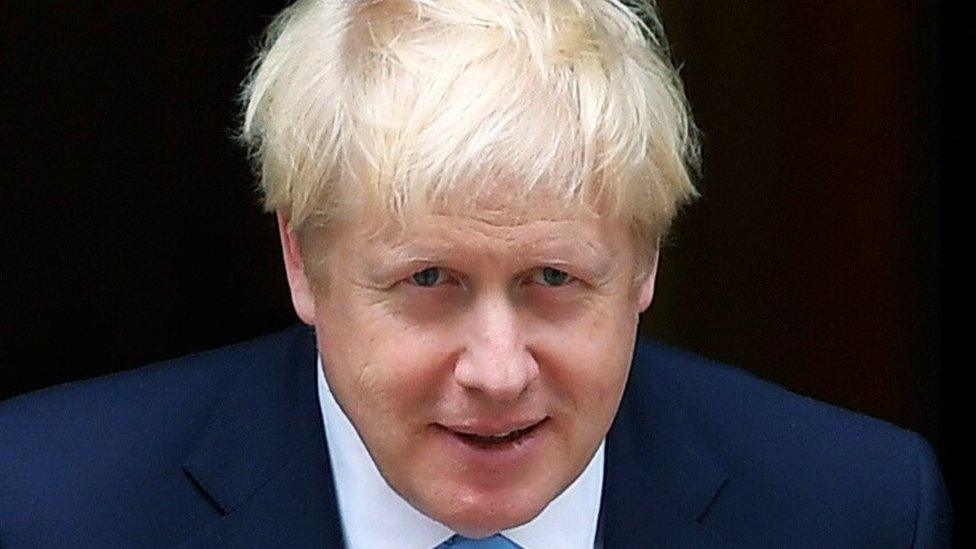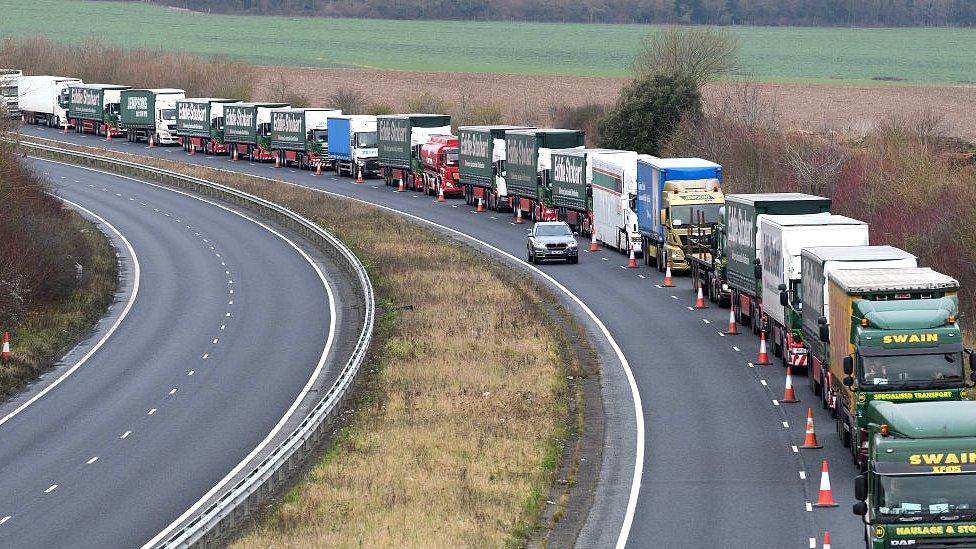Brexit: Next boss says UK can avoid no-deal chaos
- Published
- comments
Government contingency planning means the UK is becoming prepared for a no-deal Brexit, says Lord Wolfson.
The UK can avoid severe disruption in the event of a no-deal Brexit, the boss of one of the country's leading retailers has told the BBC.
Lord Wolfson, chief executive of clothing firm Next, said he still hoped a deal could be done before 31 October.
But he said the government's increased focus on contingency planning meant the UK was close to being well prepared.
Simplified customs and border procedures had made the chance of hold-ups of goods far less likely, he said.
Lord Wolfson was a strong advocate of Brexit in the run-up to the referendum but has previously warned that a no-deal Brexit would bring about "chaos and disorder", while stopping short of a catastrophe.
In an exclusive interview with the BBC Today programme, the Conservative peer said the last government had failed to adequately prepare - a situation that was now being addressed.
"We are a long way from disorder and chaos, the fact that HMRC has introduced these transition methods will make an enormous difference. I think the encouraging thing is that we are rapidly moving from the disorder and chaos camp to the well-prepared camp.
"I should stress that I would much prefer a deal to no deal, but I am much less frightened by no deal if the government is prepared, and there is every indication it's taking it more seriously."
He said he was still hopeful a deal could be done before 31 October and that increased preparation for no deal would help secure one.
"In the vast majority of deals I've done, if the deadline is midnight, the deal gets done at 11:55 but we need to have nerves of steel and prepare ourselves for either outcome."

Even if the UK ports wave everything through, Lord Wolfson concedes that the government cannot influence what will happen on the other side. He said that Next had moved all its imports and exports out of Calais to other ports.
There will be some who will say that redirecting all your business away from Calais does not square with being confident that all will go smoothly.
He did concede that at bottlenecks like Calais, there was a chance that smaller companies without the right preparation could cause a big problem by getting in the way of everyone else. If that was the case, we would need to get them out of the way - sending them back to the EU empty if necessary.
Empty trucks solution
Lord Wolfson also said that if there was any issue with getting goods out of the UK in the event of a no-deal Brexit, one solution could be sending empty trucks over to Europe.
"The cost of an empty leg is around £400. So sending a small number of trucks, that can't get across, empty, rather than putting them into a lorry park means at least you can get goods back," he said.
In such a scenario, he said that the government could "look at" compensating hauliers.
"The government needs to look at what it will take to make sure that the small number of trucks that can't leave the country at least go back empty so that they can come back full.
"I don't know if the right answer to that is to compensate them, or whether to charge the companies that have sent goods incorrectly to the ports so they can't get through."
'Scared of no deal'
The Next chief had sharp criticism for the last government's lack of preparation.
"There was a wilful attempt to not prepare. They were so scared of no deal they couldn't allow anyone to admit it could happen. That's changing and I think that means in the worst case you get mild disruption - in the best case - you get a deal."
Lord Wolfson was however critical of the government's approach towards future immigration. He said the imposition of a minimum salary of over £30,000 was a mistake.
"I think it is a very unwise way to measuring need by looking at someone's salary".
Lord Wolfson summed up his guide to a successful Brexit with four P's: Ports, people, prices and perception. If you can get those right the UK can both cope with no deal and in so doing, increase the chances of getting one.
His stoic position is at odds with dire warnings from some business groups and some former cabinet ministers who have described no deal as a catastrophic outcome and here will be many who say that it's all very well for a business with a turnover of over £4bn a year to be well prepared.
Lord Wolfson acknowledges there will be many smaller businesses who may struggle. But he also argues the government is now doing its job - the rest is down to them.
- Published9 August 2019

- Published7 August 2019

- Published20 September 2019

